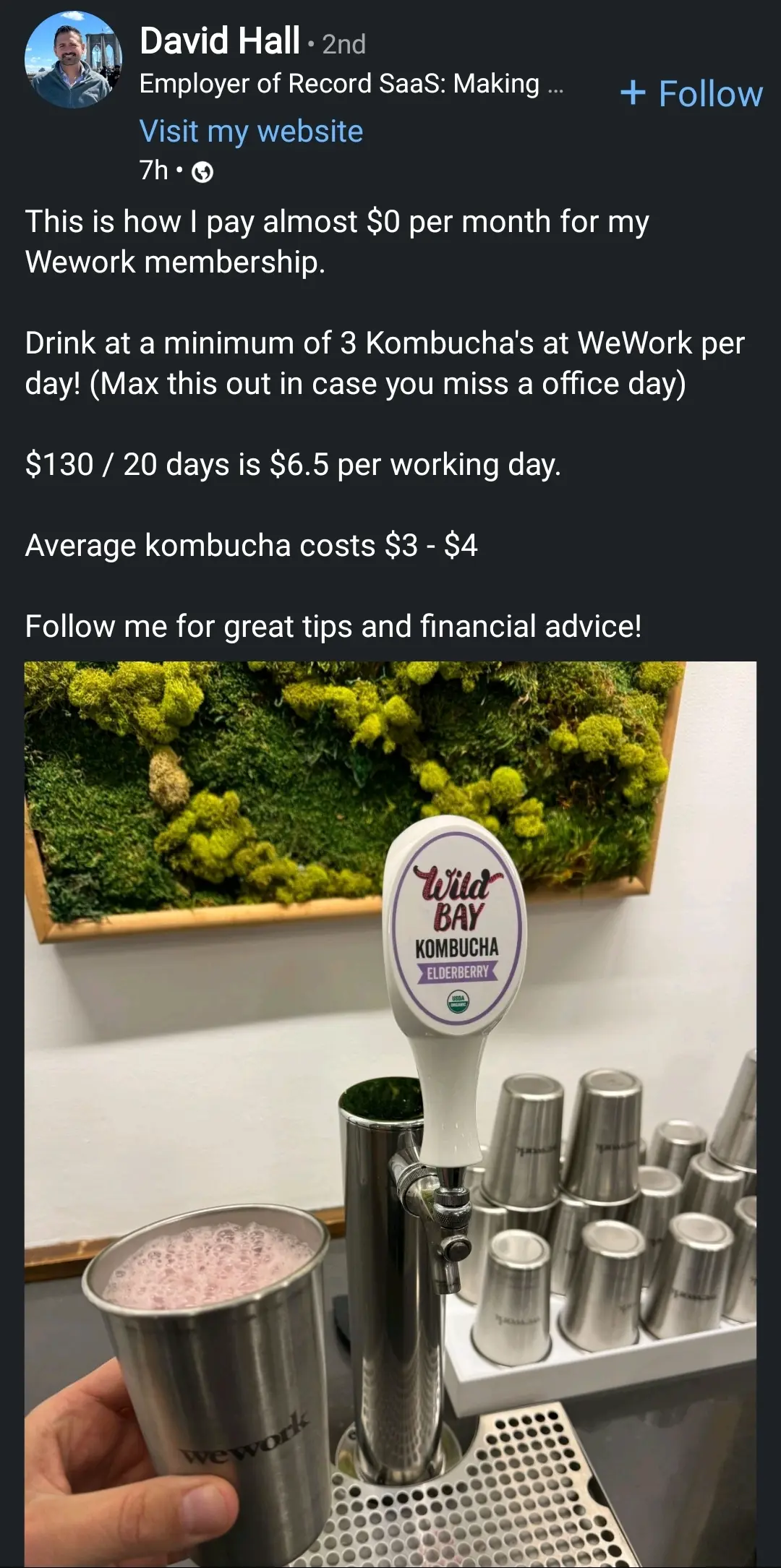this post was submitted on 16 Apr 2024
190 points (98.5% liked)
LinkedinLunatics
3271 readers
1 users here now
A place to post ridiculous posts from linkedIn.com
(Full transparency.. a mod for this sub happens to work there.. but that doesn't influence his moderation or laughter at a lot of posts.)
founded 1 year ago
MODERATORS
you are viewing a single comment's thread
view the rest of the comments
view the rest of the comments

I think the alcohol removal process increases the price quite a bit. Still very marked up though.
That's the trick, don't remove the alcohol
But then you have to restrict your userbase to over 21s and can't sell it in many supermarkets. Without alcohol it can be sold as a soft drink.
It's not a lot of alcohol, it's like 1% by volume or something last I checked. You can make it higher, but I think it caps out around 3%.
That's accurate, but anything above 0.5% is considered alcoholic in the US. There have been some small pushes to get the limit increased to 1.25%, which would make the usual levels of alcohol in normal kombucha legal, but I don't think that'll actually ever happen.
0.5% in the States? Yuck. Paranoid. Anyway not too expensive. Filtering out the yeast. Bubbling oxygen through the mix. Increased nucleation might do it too.
Regardless: huge markup.
At least here it can have 1.1% ABV without triggering regulations. Most of the sugars get metabolized by yeast into alcohol, then bacteria into vinegars. The better it's oxygenated, the more vinegars are made. You don't remove the alcohol, you convert it.
So 40g of sugar in a litre would become about 20g of alcohol, most of which becomes vinegar. The exact amount depends on time, temp, oxygen.